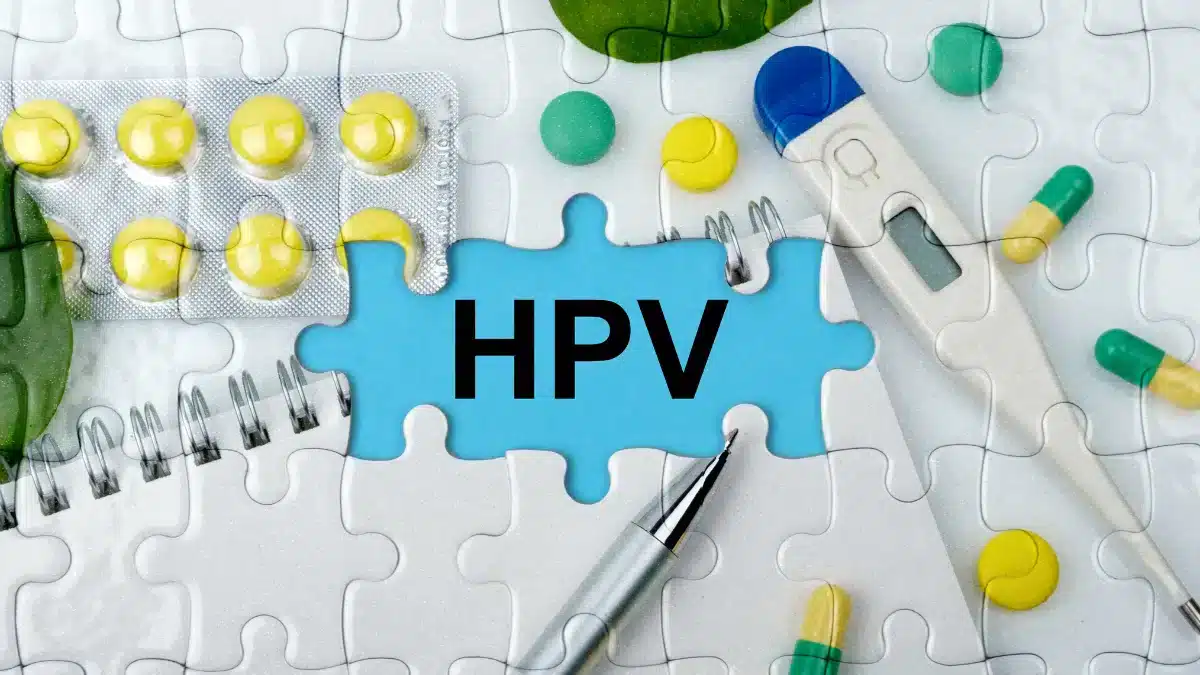Can HPV Be Cured With Antibiotics? Unraveling the Facts
Human Papillomavirus (HPV) is the most common Sexually Transmitted Infection (STI) that is primarily caused by skin-to-skin contact, particularly during sexual activity.
HPV infections are prevalent and can affect both men and women.
It causes 5% of global cancers, with about 625,600 women and 69,400 men diagnosed yearly.
HPV is usually harmless and goes away by itself, but some types can lead to cancer or genital warts.
The question that arises here is, can HPV be cured with antibiotics or not, read this insightful article to know more.
HPV antibiotics
Antibiotics are medicines that help with bacterial infections by stopping bacteria from growing or killing them.
However, they don’t work against viruses like HPV.
So, there’s no antibiotic for curing or treating HPV.
There are vaccines to stop certain types of HPV from causing infections.
It’s crucial to talk to a healthcare provider to figure out the right approach for treating HPV infections.
Can antibiotics prevent the spread of HPV infections

While antibiotics don’t directly treat HPV infections, they can still be valuable in hindering the virus’s spread.
Specifically, antibiotics are useful in addressing bacterial co-infections often found alongside HPV.
They play a role in preventing secondary infections, particularly in individuals with weakened immune systems.
Moreover, antibiotics can be used to address complications that might emerge from HPV infections, like genital warts or Cervical Dysplasia.
Antibiotics for HPV infections
As mentioned before, antibiotics don’t work against HPV. If there are bacterial co-infections with HPV, antibiotics like Penicillin, Erythromycin, Tetracycline, and Metronidazole can help.
The right amount and duration of treatment depend on the type and seriousness of the bacterial infection.
Remember, when using antibiotics for bacterial co-infections in people with HPV, it’s crucial to have a healthcare professional closely monitor the situation.
Misusing antibiotics can lead to antibiotic resistance, making it harder to treat infections in the future.
Side effects of antibiotics
- Side effects of antibiotics can include nausea, Diarrhea, and allergic reaction
- Additionally, the use of antibiotics for bacterial co-infections in HPV patients can lead to antibiotic resistance, making future infections more difficult to treat
Precautions

It is essential to take several precautions to minimize side effects and ensure the effectiveness of the treatment:
- Monitor for side effects: Be aware of common side effects, such as nausea, Diarrhea, and allergic reactions, and report any unusual symptoms to your healthcare provider
- Complete the full course of treatment: Finishing the entire course of antibiotics as prescribed by your healthcare provider is essential for eliminating the infection and preventing its recurrence
- Avoid sexual activity: Abstaining from sexual activity is the most reliable method for preventing genital HPV infection
- Use condoms: Consistent and correct condom use can decrease the chances of HPV acquisition and transmission
- Get vaccinated: Vaccines are available to prevent certain strains of HPV that are known to cause cancer
- Regular check-ups: Schedule regular appointments with your healthcare provider to monitor your progress and address any concerns or symptoms
Conclusion
Antibiotics cannot cure HPV infections, as they are effective only against bacterial, not viral, infections.
While antibiotics may help manage bacterial co-infections, they do not directly address the HPV virus.
Antibiotics may have side effects, and their misuse can lead to antibiotic resistance.
Taking precautions during antibiotic treatment, such as monitoring side effects, completing the full course, and exploring alternative treatments, is crucial.
Additionally, practicing safe sex, using condoms, getting vaccinated, and regular check-ups contribute to a comprehensive approach to managing HPV infections.
Overall, a well-informed and cautious approach is vital in addressing HPV and its related complications.
Frequently Asked Questions
Can antibiotics treat HPV?
Antibiotics are not a cure for HPV as they target bacterial, not viral, infections. HPV, a viral infection, remains unaffected by antibiotics. Their role is limited to bacterial co-infections, making antiviral medications the primary choice for managing HPV outbreaks and vaccines for prevention.
Can antibiotics clear up HPV?
No, HPV is a viral infection, and medications for bacterial infections are ineffective against it. Presently, there are no clinically approved medications specifically designed to treat HPV.
What precautions should be taken during antibiotic treatment for HPV?
Monitor for side effects like nausea and diarrhea, complete the full antibiotic course, consider antiviral medications, practice safe sex, use condoms, get vaccinated, and schedule regular check-ups for comprehensive care.
What are some antibiotics used to treat HPV?
While antibiotics like Penicillin, Erythromycin, Tetracycline, and Metronidazole can manage bacterial co-infections with HPV, it’s crucial to understand that antibiotics do not directly treat the HPV virus itself. They are not effective in treating HPV infections.
WowRx uses only high-quality sources while writing our articles. Please read our content information policy to know more about how we keep our content reliable and trustworthy.






